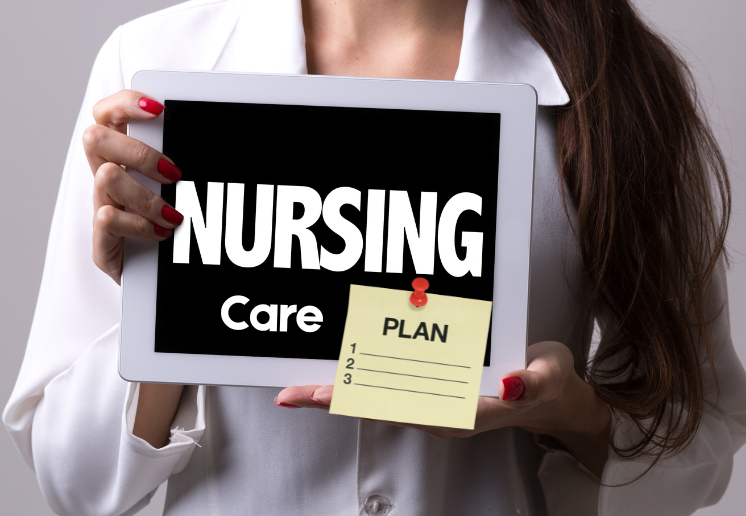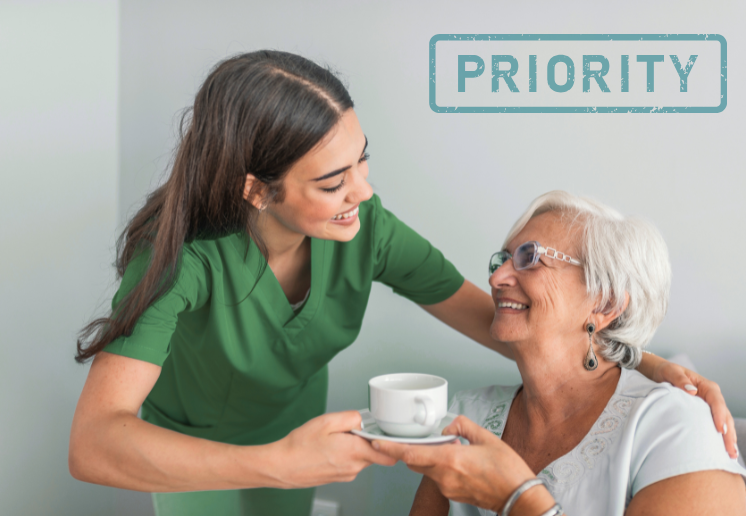Table of Contents
Frankly, yes. Registered nurses are in demand around the world. And the US Bureau of Labor Statistics expects a need for over 275K additional nurses by 2030. In fact, employment opportunities for nurses are going to be higher than for so many other occupations.
But why? With Baby Boomers and Gen X growing old, the requirement for healthcare has skyrocketed with a lot of demand for professional nursing professionals. The population has viruses and other diseases; this demographic shift propels the rising requirement for highly qualified registered nurses.
So, if you’re concerned about the demand of this profession, don’t worry. Just start the prep for NCLEX or other premiere nursing exams. Meanwhile, let’s elaborate on the “why” and how you can leverage this demand.
Why are Registered Nurses in Demand?
Let me give you a few reasons why there’s a high demand for registered nurses.
Aging Population
Since the Baby Boomer generation is aging, the demand for health care increases multi-fold. Most older adults suffer from multiple chronic conditions, which need continuous assessment and follow-up care, most of which is provided by the RNs.
Prevalence of Chronic Diseases on the Rise
Chronic diseases like diabetes and heart disease, and obesity, have become rampant. These conditions call for long-term management and care, thereby increasing the demand for RNs in the field of health care.
Shortage of Nursing Faculty
The lack of nursing faculty limits the ability of nursing schools to train more nurses. The shortage of qualified nursing faculty leads to a shortage of RNs entering the workforce.
Nurse Burnout and Retirement
Many nurses who have been practicing for years are retiring, and the rigors of the job often leave younger nurses burnt out. The combination of these two factors leads to a large number of RNs exiting the profession.
Increasing Healthcare Access
With efforts to extend health care accessibility, more people become insured and, therefore, access medical care. This increased utilization of health services obviously results in a greater requirement for RNs.
Advancements in Medical Technology
Advances in medical technology and treatments often require more specialized nursing expertise and knowledge and, therefore, enhance the demand for highly trained RNs.
Emphasis on Preventive Care
There is increased concern for preventive care and health promotion to maintain health and stay away from the hospitals. It requires the education of the patient and communities toward healthy lifestyles and the prevention of disease through RNs.
The COVID-19 Pandemic
It also highlighted that there is no greater role in health care systems other than nursing professionals. Increased rates of burnout and early retirement among nurses worsen the problem.
These all together set in rise a constant demand for RNs in hospitals, clinics, home services, and care facilities.
Well, no matter the reasons; it’s important to get well prepared for the NCLEX-RN with FBNPC and become the best registered nurse possible.
Sign up for nursing prep courses today!
Early registrations bring along limited-time promotional prices and special offerings.
How to Be the Best Registered Nurse?
Being the best registered nurse involves a combination of technical skills, personal qualities, and a commitment to continuous learning. Here are some key aspects:
Clinical Excellence
Strong Foundation: Possess a solid understanding of anatomy, physiology, pharmacology, and disease processes.
Proficient Skills: Master essential nursing skills such as administering medications, wound care, patient assessment, and using medical equipment.
Critical Thinking: Develop strong critical thinking and problem-solving skills to analyze patient data, make sound clinical judgments, and respond effectively to emergencies.
Attention to Detail: Be meticulous in your work, ensuring accuracy in documentation, medication administration, and patient care procedures.
Compassionate Care
Empathy: Cultivate genuine empathy and compassion for patients and their families, recognizing their unique needs and concerns.
Communication: Ensure proper communication with patients, their families, and colleagues to clarify issues and demonstrate active listening while providing emotional support.
Cultural Sensitivity: Show cultural awareness and respect to patients from other cultures, understanding that care can be tailored for different needs.
Patient Advocacy: Advocate for your patients’ well-being, ensuring they receive the best possible care and their rights are protected.
Professionalism
Ethical Conduct: Adhere to the highest ethical standards and professional code of conduct, maintaining patient confidentiality and integrity.
Teamwork: Collaborate effectively with interdisciplinary healthcare teams, fostering a positive and supportive work environment.
Lifelong Learning: Stay updated with the latest advancements in nursing practice through continuing education, conferences, and professional development activities.
Resilience: Develop resilience and stress-management techniques to cope with the demanding nature of the profession and maintain your well-being.
Ace these three elements, i.e. clinical skills, compassionate care, and professionalism, and you’ll be able to leverage the RN demand with ease.
US States with the Highest RN Demand
Several states in the US have a high demand for registered nurses due to the factors shown above. Here are the top 5.
| State | Projected RN Shortage (%) | Projected RN Shortage (FTEs) |
|---|---|---|
| Georgia | 29% | ~ -34K |
| California | 26% | ~ -106K |
| Washington | 26% | ~ -23K |
| New Jersey | 25% | ~ -24K |
| North Carolina | 23% | ~ -31K |
Most In-demand Nursing Specialties
Due to the increasing complexity of healthcare and the growing needs of specific patient populations, certain nursing specialties are set to rise in demand.
Nurse Practitioners (NPs)
A nurse practitioner is an APRN who offers wide-ranging primary and acute care. NPs diagnose and treat various conditions, prescribe medications, and direct patient care.
In preventive care, demand is growing; due to fewer numbers of primary physicians available, NPs fill the gaps.
Critical Care Nurses
Working in ICUs and providing high levels of critical care to seriously sick patients who can become life threatening at any given moment. Such a critical care environment needs advanced skill sets from these nurses to monitor, assess, and intervene.
ER Nurses
ER nurses are professionals who work in busy, high-pressure settings, caring for patients who may have diverse emergency medical issues. They must quickly assess, prioritize, and take action in such scenarios.
OR Nurses
OR nurses, or perioperative nurses, care for patients before, during, and after surgical procedures. These nurses possess a specialized body of knowledge in the techniques of surgery, instrumentation, and patient safety measures.
Home Health Nurses
Home health nurses care for patients in their own homes, which helps them with chronic conditions, recover from an illness or surgery, and stay independent. Their services are important to the community, as they are cost-effective and patient-centered.
There are plenty of job opportunities for nurses specializing in these areas, and they can contribute much toward meeting the emerging needs of healthcare services for different types of patient populations.
No matter the types of nursing specialities you want to explore, the demand is going to be beyond expected.
FAQs on Nursing Demand
Q.1) Is it a good time to choose a career in nursing?
Yes, with the high demand and projected growth in the field, now is a favorable time to pursue a career in nursing. There are ample opportunities for job security and career advancement.
Q.2) How has the COVID-19 pandemic affected the demand for nurses?
The pandemic has further highlighted the crucial role of nurses and has led to increased burnout and some nurses leaving the profession, exacerbating the existing shortage and increasing demand.
Q.3) What are the long-term projections for nursing demand?
The demand for nurses is expected to continue growing in the coming years due to the factors mentioned earlier. This makes nursing a stable and promising career choice.
Let’s Summarize the Nursing Demand
The evidence is clear: Registered Nurses are not just in demand; they are essential to the functioning of our healthcare systems. The demand comes from the aging population, prevalence in chronic diseases, complexity in treatment, etc.
This has led to critical shortages across the nation, particularly in states like California, Georgia, Washington, etc.
So if you’re considering a career in nursing, rest assured. The demand for nursing is well on its way up. To proceed with the best way further, register with FBNPC today!



